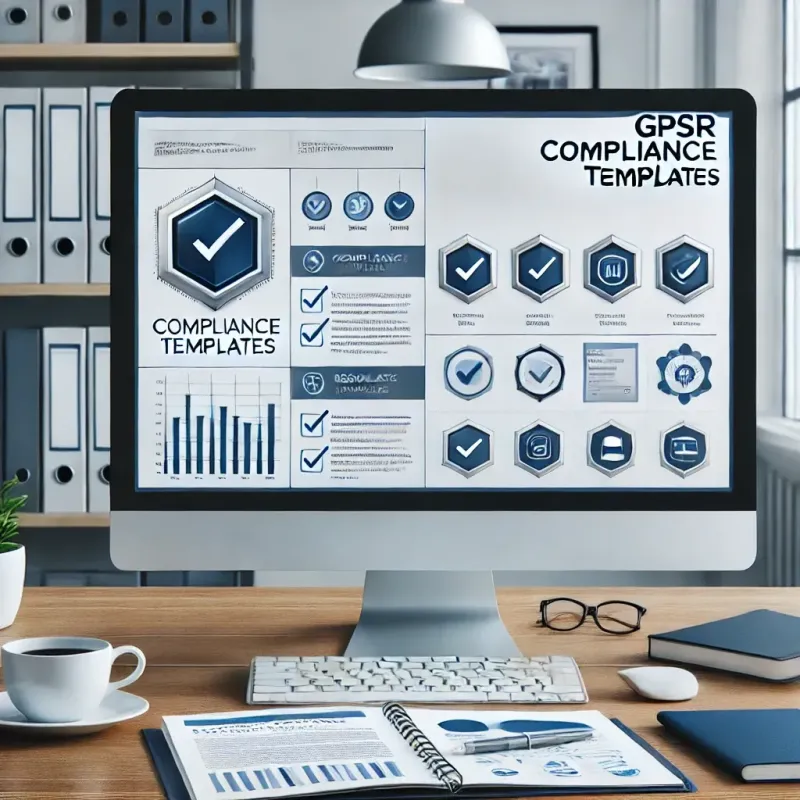Marketing Tools & Assets
Look Through Our Range Of Marketing Tools & Assets Below.
All The Tools Below Will Aid Your Marketing Efforts.
Get Your Free Marketing Audit Here
Your Free Marketing Audit will show you the gaps in your current marketing strategy and how to fill them and grow your online business.
Find out what competitors are doing that you are not and how you can get ahead of the competition.
See Our Latest Blogs
Stay up-to-date with our latest insights, tips, and trends by diving into our newest blogs. Whether you're seeking industry expertise, marketing strategies, or product inspiration, our blog section is your go-to resource for valuable content.

What Is The Best SEO Secret That You Know?
Unlocking the potential of SEO can significantly transform your online presence. The most effective SEO secrets go beyond basic keyword placement or meta tags. This guide dives into advanced strategies that amplify organic traffic, improve E-E-A-T (Experience, Expertise, Authority, Trustworthiness), and enhance technical aspects like schema markup and page speed. We also explore how tools like internal linking and competitor analysis can give you an edge. Whether you're optimizing content for local SEO or leveraging structured data for featured snippets, this article reveals actionable insights to outsmart the competition.
The Foundations of Exceptional SEO Success
Achieving high rankings on search engine results pages (SERPs) is both an art and a science. What is the best SEO secret that you know? The answer often lies in the ability to integrate foundational techniques with advanced strategies that align with evolving search engine algorithms.
Why E-E-A-T Matters More Than Ever
E-E-A-T, which stands for Experience, Expertise, Authority, and Trustworthiness, has become a cornerstone of Google’s ranking framework. Prioritizing E-E-A-T means ensuring your website demonstrates credibility and provides genuine value to users.
Experience: Show firsthand knowledge or use cases.
Expertise: Have industry professionals or subject matter experts create content.
Authority: Build a strong backlink profile from credible sources.
Trustworthiness: Secure your website with SSL certification and offer clear, accurate content.
Want to know how well your website aligns with these principles? Consider a free website audit to assess your strengths and weaknesses.
Technical SEO: Building the Framework for Success
Technical SEO ensures your site is optimized for search engine crawlers and provides a seamless user experience. Focusing on these technical elements can drastically improve rankings:
Schema Markup: Add structured data to make your content eligible for rich snippets.
Page Speed Optimization: Ensure fast load times for both desktop and mobile users.
Mobile Responsiveness: With Google’s mobile-first indexing, your site must be flawless on all devices.
404 Error Management: Regularly audit for broken links and resolve errors.
Search Engine Crawlability: Use sitemaps and robots.txt to guide crawlers effectively.
Pro Tip: Implement heatmap analytics to identify user behavior patterns and improve navigation for a smoother user experience.
Keyword Research: The Foundation of Visibility
At the heart of any SEO strategy is identifying and targeting the right keywords. But keyword research has evolved:
Search Intent Matters: Distinguish between informational, transactional, and navigational keywords.
Low-Hanging Fruit Keywords: Focus on high-traffic, low-competition phrases for quick wins.
Semantic Keywords: Include related terms to enhance relevance and coverage.
For example, if your business focuses on eCommerce SEO services, targeting long-tail keywords like “best SEO strategies for small businesses” may yield better results.
"Keyword research isn't just about ranking for high-volume terms. It's about meeting the intent behind those searches."
Content Optimization: Creating Value at Every Step
Creating content that resonates with both users and search engines is pivotal. Here’s how to optimize effectively:
Above-the-Fold Content: Ensure key information and CTAs appear before users scroll.
Alt Text for Accessibility: Improve image SEO by adding descriptive alt text.
Dynamic Content for Personalization: Tailor user experiences based on their behavior or location.
Internal Linking: Strategically link to other relevant pages on your site to enhance navigation and distribute link equity.
For instance, a blog post discussing seasonal SEO tactics can link to your homepage to guide users to other valuable resources.
Advanced SEO Tactics to Outrank Your Competition
While foundational SEO strategies build a strong base, advanced techniques often create the competitive edge needed to dominate the SERPs. This section delves into actionable off-page strategies, innovative tools, and emerging trends that can help you achieve sustained growth.
Off-Page SEO: Building Credibility Beyond Your Website
Off-page SEO focuses on improving your website's authority and reputation through external efforts. These tactics can amplify your online visibility and organic traffic:
Backlink Building: Secure links from authoritative and niche-relevant websites. Quality matters more than quantity—focus on earning links from sites with high domain authority.
Rel=ugc and Rel=sponsored: Leverage user-generated content (UGC) and sponsored backlinks appropriately to signal relevance and maintain compliance with Google guidelines.
Social Signals: Promote your content on social media platforms to boost engagement and drive referral traffic.
Local SEO: For businesses targeting specific locations, optimize your Google My Business profile and encourage customer reviews to dominate local searches.
"Backlinks are the backbone of SEO success. They serve as a vote of confidence, signaling to search engines that your content is valuable and trustworthy."
To start building your off-page SEO strategy, explore services like eCommerce SEO solutions designed to enhance your digital presence.
Emerging Trends: Stay Ahead of the Curve
SEO is constantly evolving, and staying updated on emerging trends is critical. Here are some cutting-edge strategies to integrate into your SEO efforts:
Voice Search Optimization: Optimize content with natural, conversational phrases to capture queries from voice assistants like Alexa or Siri.
Zero-Click Searches: Target featured snippets, knowledge panels, and other SERP features that provide immediate answers without requiring a click.
AI Integration: Use AI-powered tools for predictive search trends, competitor analysis, and dynamic content recommendations.
Interactive Content SEO: Incorporate quizzes, polls, and interactive tools that engage users and improve time-on-site metrics.
Pro Tip: Content gap analysis can identify opportunities where competitors are ranking, but your content is missing. Filling these gaps is a quick way to improve rankings.
Optimizing for Featured Snippets and Structured Data
Featured snippets are a prime opportunity to leapfrog competitors in the SERPs. Structured data plays a critical role in making your content eligible for these rich results:
Use Schema Markup: Include FAQ, How-to, and Product schema to enhance the visibility of your content.
Answer Common Questions: Format answers concisely and directly for queries like "What is the best SEO secret that you know?"
Incorporate Lists and Tables: These formats are more likely to be pulled into featured snippets.
Example:
If your content is about "SEO strategies for eCommerce," using a structured FAQ schema can help your page appear in a rich snippet when users search for "best SEO for online stores."
Content Marketing: Driving Long-Term Results
Content marketing is not just about creating blog posts—it’s about providing value consistently. Here’s how to craft a content strategy that aligns with your SEO goals:
Focus on User Experience (UX): Break up text with bullet points, visuals, and short paragraphs to improve readability.
Target Seasonal SEO Opportunities: Optimize content for specific holidays, trends, or events that resonate with your audience.
Repurpose High-Performing Content: Turn a successful blog post into an infographic, video, or social media series.
Leverage Video SEO: Use platforms like YouTube to enhance your presence and link back to relevant pages on your website.
For professional guidance on crafting content that converts, request a free SEO audit to identify opportunities for improvement.
Enhancing Engagement Metrics for SEO Success
Google’s algorithms pay close attention to how users interact with your content. Improving engagement metrics can lead to higher rankings:
Reduce Bounce Rates: Ensure that landing pages provide immediate value to prevent users from leaving.
Improve CTR: Write compelling meta titles and descriptions to increase click-through rates.
Optimize Above-the-Fold Content: Place engaging visuals, headlines, and CTAs where users see them first.
Encourage Social Shares: Add shareable elements to content and actively promote them across platforms.
"SEO is as much about engaging your audience as it is about technical optimization."
By focusing on user intent and experience, you can create content that not only attracts visitors but keeps them coming back.
Mastering Competitor Analysis and Long-Term SEO Success
In this final section, we’ll dive into advanced tactics for competitor analysis, predictive search trends, and the tools needed to maintain sustainable growth in your SEO strategy. By combining these insights with previously discussed methods, you can refine your approach and stay ahead of the competition.
Competitor Analysis: Unlocking the Blueprint of Success
Competitor analysis is essential for understanding what works in your industry and identifying areas for improvement. Here’s how to perform a thorough competitor review:
Identify Key Competitors: Use tools like SEMrush or Ahrefs to discover the websites ranking for your target keywords.
Examine Content Quality: Analyze the depth, format, and style of their content. Identify gaps where you can provide additional value.
Audit Backlink Profiles: Evaluate the type of sites linking to your competitors. This can reveal new opportunities for your backlink strategy.
Analyze On-Page SEO: Study their use of meta tags, internal linking, and schema markup to replicate successful practices.
Track SERP Features: Note if competitors appear in featured snippets or use strategies like video SEO to enhance visibility.
"Competitor analysis isn’t just about copying strategies—it’s about learning, innovating, and outperforming."
For a detailed breakdown of your site compared to competitors, take advantage of a free SEO audit and identify actionable insights.
Leveraging Predictive Search Trends
Staying ahead of search behavior is critical in maintaining SEO success. Predictive search trends can help you anticipate user intent and align your content strategy accordingly:
Monitor Emerging Keywords: Use tools like Google Trends to track rising search terms.
Incorporate Voice Search Phrases: Optimize content for natural, conversational queries often used with voice assistants.
Seasonal Keyword Planning: Develop content around holidays, annual events, or industry-specific milestones to capture timely traffic.
Analyze User Data: Leverage analytics to predict future behavior based on historical trends.
By aligning your strategy with predictive insights, you can capture high-value traffic before competitors.
Advanced Tools for SEO Performance Monitoring
Sustainable SEO success requires ongoing performance tracking. Here are some tools and metrics to focus on:
Google Analytics: Measure organic traffic, bounce rates, and conversion rates.
Heatmap Analytics: Tools like Crazy Egg reveal how users interact with your site, allowing you to optimize design and navigation.
Search Console: Track indexing issues, keyword performance, and SERP visibility.
Backlink Monitoring: Tools like Ahrefs or Moz ensure your backlink profile remains strong and relevant.
Rank Trackers: Use tools like AccuRanker to follow your keyword positions over time.
Regularly auditing your site and metrics ensures you stay adaptable to algorithm updates and market shifts.
Future-Proofing Your SEO Strategy
The SEO landscape is constantly evolving, and strategies must adapt to meet new challenges. Here are some ways to future-proof your SEO efforts:
Focus on Dynamic Content: Personalization tools and AI can help tailor experiences to individual users.
Prepare for AI-Driven Search: Google’s integration of AI into search (e.g., MUM) will demand content that is highly contextual and authoritative.
Optimize for Mobile-First Indexing: Ensure every page is mobile-friendly, as mobile-first indexing is now standard.
Stay Updated on Google Algorithm Changes: Regularly review updates to understand their impact and adjust your strategies.
Integrate Video Content: Video continues to dominate user engagement metrics—use platforms like YouTube and embed relevant content into pages.
For professional help in adapting to these changes, explore our SEO services designed to optimize your site for long-term growth.
Final Takeaways
To recap, here’s what you need to focus on for sustainable SEO success:
Master On-Page and Technical SEO: Ensure your site is optimized for user experience, speed, and search engine crawlability.
Develop High-Quality, Relevant Content: Align with E-E-A-T principles and continuously target user intent.
Leverage Advanced Strategies: Incorporate schema markup, featured snippet optimization, and voice search techniques.
Engage in Competitor Analysis: Use insights from competitors to refine your approach.
Monitor and Adapt: Regularly analyze performance and stay ahead of algorithm changes.
By implementing these strategies, you’ll not only achieve better rankings but also establish a strong foundation for sustained growth in the competitive SEO landscape.
FAQ: Common Questions About SEO Secrets
Here’s a list of frequently asked questions related to "What is the best SEO secret that you know?" that delve deeper into the nuances of SEO strategies.
1. How important are meta descriptions for SEO?
Meta descriptions don’t directly influence rankings but significantly impact click-through rates (CTR). Crafting compelling, keyword-rich meta descriptions can encourage users to click on your link over competitors in the SERPs.
2. Does content length affect SEO rankings?
Yes, but quality is more important than length. Longer content tends to perform better in search rankings as it provides in-depth answers, but only if it maintains relevance and offers value to readers.
3. How can businesses use local SEO to their advantage?
Local SEO is crucial for businesses targeting specific geographic areas. Optimizing your Google My Business profile, using location-specific keywords, and encouraging customer reviews are key tactics to improve local rankings.
4. What are "semantic keywords," and why are they important?
Semantic keywords are terms related to the primary keyword that help search engines understand the context of your content. Including them improves relevance, broadens keyword coverage, and boosts rankings for related search queries.
5. How do user engagement metrics impact SEO?
Metrics like bounce rate, time on page, and pages per session indicate how users interact with your site. Search engines interpret positive engagement as a sign of quality, which can improve rankings.
6. Should I prioritize optimizing for desktop or mobile users?
With Google’s mobile-first indexing, mobile optimization should be a priority. Ensure your site is responsive, fast-loading, and provides an excellent user experience on mobile devices.
7. How does video content contribute to SEO success?
Videos increase engagement, dwell time, and social shares. Platforms like YouTube also act as powerful search engines themselves, driving traffic back to your site when optimized correctly.
8. What are "low-hanging fruit" keywords, and how can I find them?
Low-hanging fruit keywords are high-traffic, low-competition phrases that are easier to rank for. Use tools like SEMrush, Ahrefs, or Google Keyword Planner to identify these opportunities based on search volume and competition.
9. How often should I update my content for SEO purposes?
Regular updates ensure your content stays relevant and competitive. Refresh outdated statistics, add new insights, and optimize for emerging keywords to maintain or improve rankings.
10. What role does internal linking play in SEO?
Internal linking improves navigation, distributes link equity across your site, and helps search engines understand the structure of your content. Strategically linking related pages enhances user experience and SEO performance.
About Us
Our complete digital marketing packages are available from as little as £299 per month with no fixed contracts. Get Your FREE Audit today!
Contact Us
Email: [email protected]
Copyright© 2025 Easy Ecommerce Marketing - All Rights Reserved.


